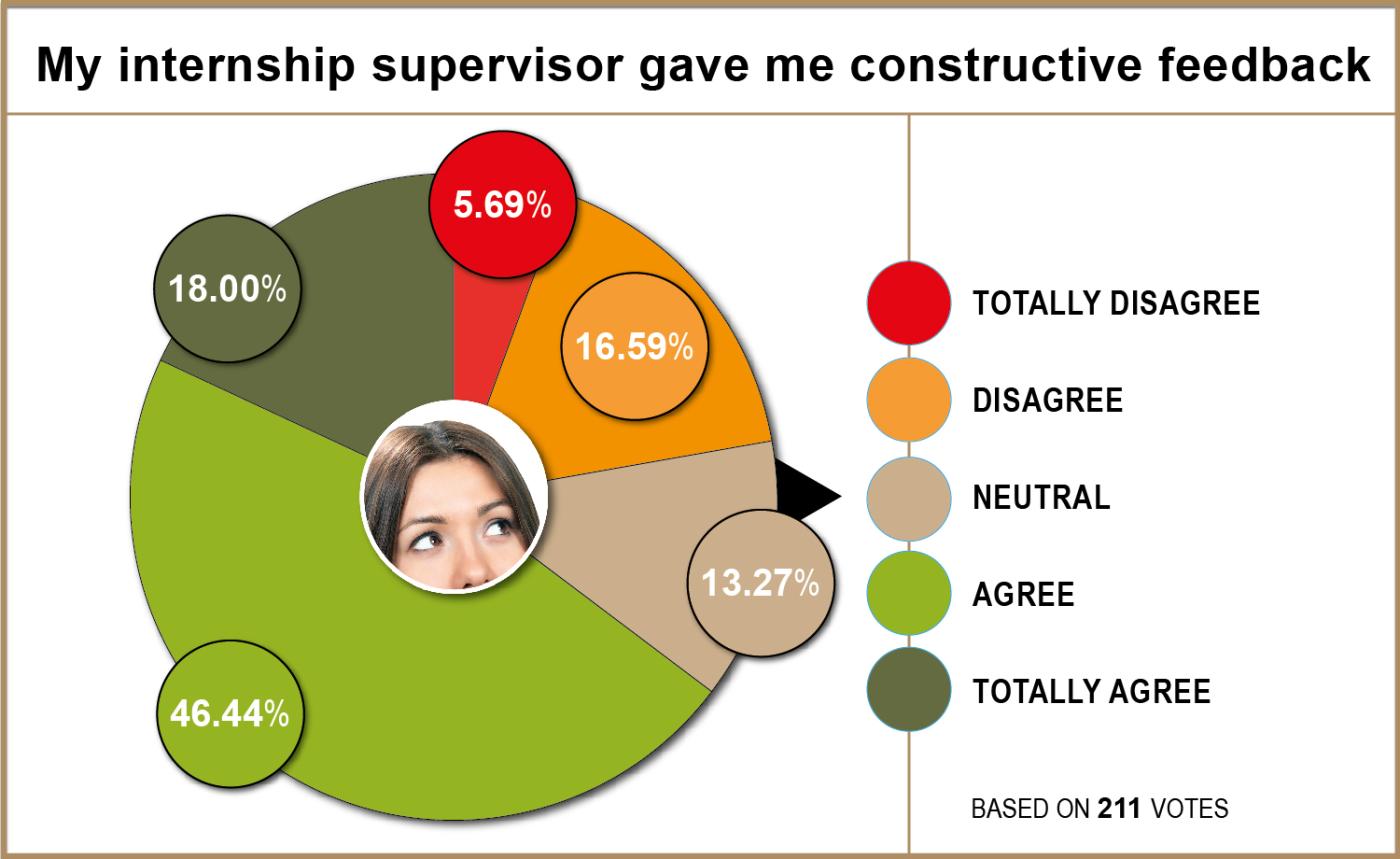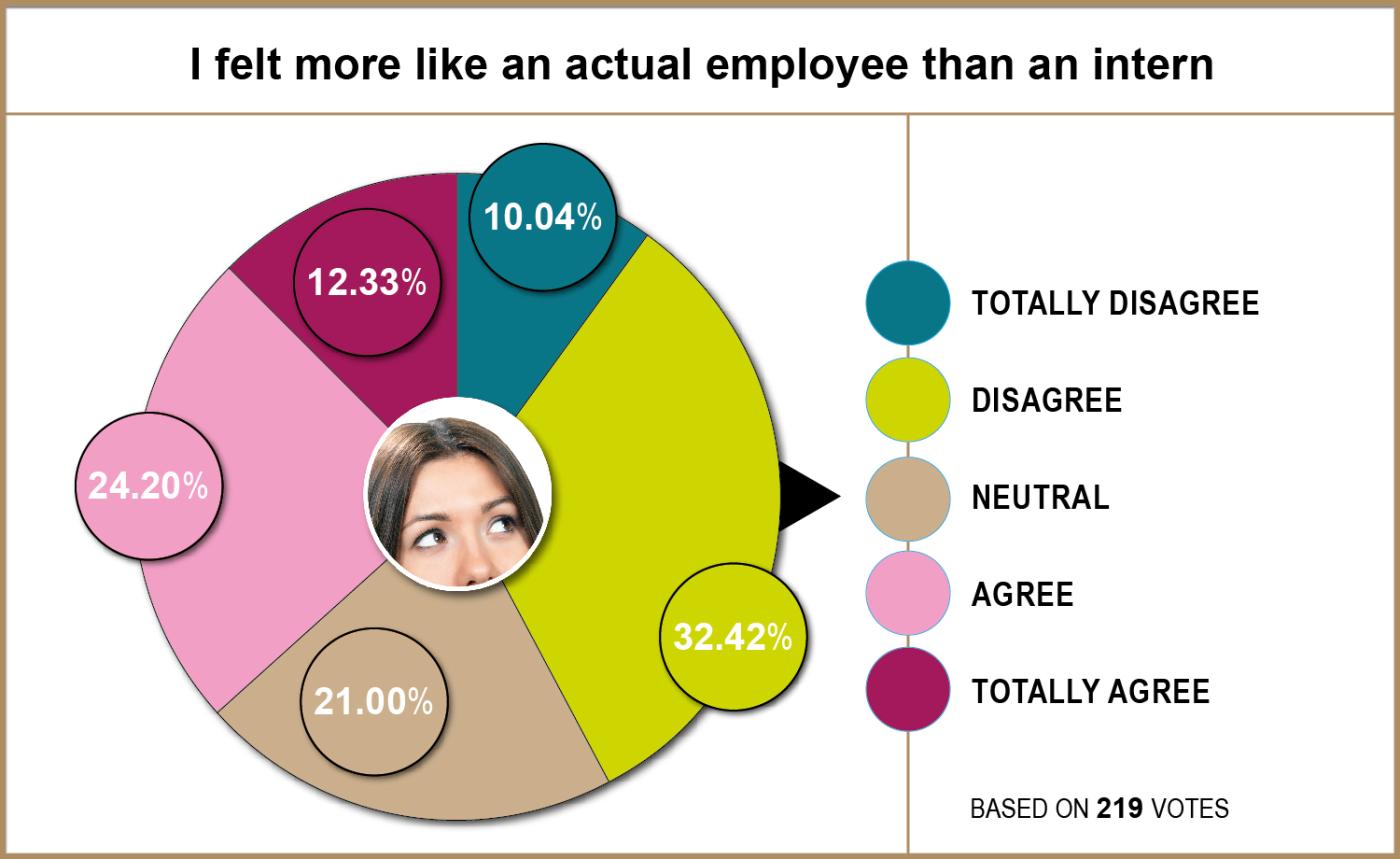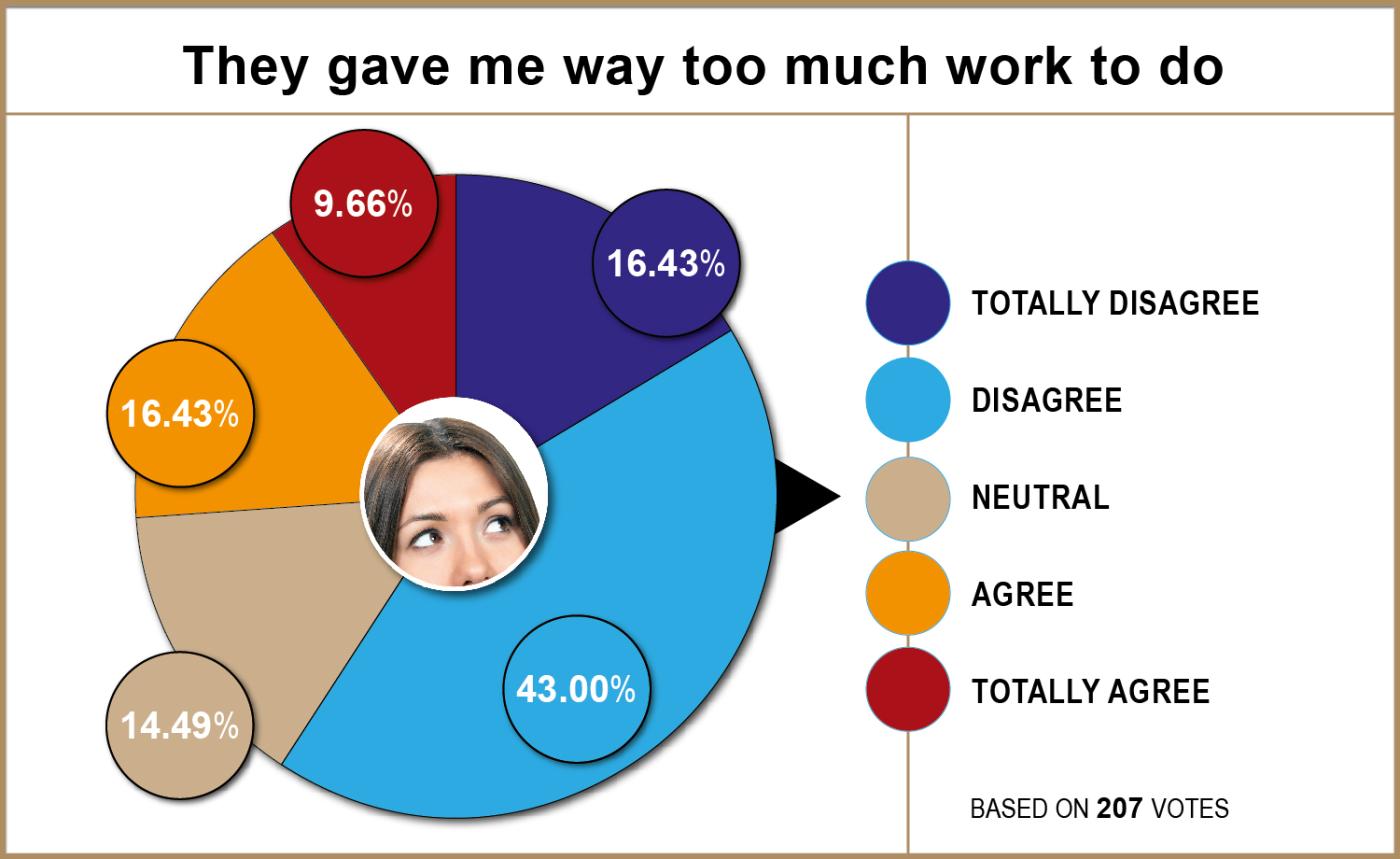DUB's Internship Survey, Part 1
Interns frequently feel as though they are being used for cheap labour

Internships are an intense and edifying time for students. However, some aspects of it are not so stellar. For example, it is well known that some interns do not get paid and Medical students are often faced with abuse (including behaviours of a sexual nature) during their residencies. Other experiences are much less talked about, which is why DUB decided to investigate the problems UU students encounter during their internships. Students were invited to fill in a survey in April. This article is the first one of a series on internships. Part 2 covers the supervision provided by the UU. Part 3 is about abusive situations experienced by the students, such as bullying, discrimination or sexual harassment.
Fortunately, most interns are doing just fine. On average, students rate their internships with a 7.2. The vast majority of respondents say they learned a lot thanks to their internships.
Three-quarters of respondents say they were able to ask questions to their supervisor at the internship itself, and over 50 percent of them report having received constructive feedback. The percentage of students who indicated that they received the supervision and guidance they needed to accomplish their tasks is 60 percent.
On average, students rated the supervision they got at the company or organisation with a 7. They were less pleased with the guidance they received from the university, giving it a 6.2.

What went wrong
Although most students had a pleasant and instructive experience, more than one in ten respondents did not give their internships a passing grade. Their main reasons for doing so are an excessive workload and the responsibilities that were conferred to them. The quality of the supervision received also left some things to be desired.
The survey also found that 30 percent of the students surveyed felt more like full-time employees than interns. One in four indicates that working overtime was the rule rather than the exception, while one in five considers their workload to be too high since they were given too many responsibilities. In addition, calling in sick or taking vacation days was an issue for 10 percent of respondents.

Twenty percent of the students says they were badly supervised. They don’t think that they received the guidance they needed to carry out their tasks properly. One in four students reports not getting any constructive feedback.
Although some of the students complain about the high workload, others (17 percent) feel that they had too little work to do. They consider their internships too easy, saying that the tasks were below the thinking level of a university student, which led them to pick things up quickly and not learn anything new afterwards.

Students’ experiences
The respondents who rated one or more aspects of their internship negatively were given the opportunity to share their experiences in more detail. A total of 54 students did so. To ensure the anonymity of these participants, oft-mentioned and overlapping answers have been merged, so that they cannot be traced back to individual respondents.
Some of the students say that they worked overtime often or that they worked “extremely” long hours – more hours than they had agreed to in their internship contracts, therefore. Sometimes students land in companies with a results-oriented culture in which working overtime is considered “normal”, as is working outside office hours or even on weekends.
According to these students, staff shortages are the main cause of high workloads among interns, as they are used to fill in the gaps. Several respondents lost their supervisor halfway through the internship due to illness or to the person leaving the company, and there was no replacement. Two students even had to take over their supervisor’s work.
Several students actually did the same work as other paid employees. One student downright felt like “cheap labour.” According to the respondents, the high workload prevalent in the company also has an impact on the quality of the supervision, such as when students feel reluctant to ask for help because they don’t want to disturb anyone.
Supervision at the company
Demanding work environments are not the only problem mentioned by the students who answered our questionnaire. Some respondents also point out that the people who supervised them at the company ended up spoiling the whole internship experience. One of them writes that their supervisor demanded too much of them, making unrealistic requests and always setting “unattainable” deadlines. Another one says that their supervisor asked them to do “an unreasonable” amount of research.
Complaints about not getting feedback or being ignored by their supervisors were also present in the written responses. One student says they felt as though they could “never do anything right”, while others were subjected to abusive behaviour, such as bullying, discrimination, and harassment. We’ll come back to that later in the third article of this series, which will be dedicated to situations in which the interns’ boundaries were violated.
Assessments matter
The power imbalance between interns and supervisors also contributes to silencing interns. To many, the consequence is working even harder to meet all the requirements, which can generate stress, insomnia, and, in some cases, physical and mental exhaustion.
Our respondents say that, as interns, there was little they could have done to change their situation. Despite the problems, students tend to stick to the internship because they need the credits to graduate on time, or because they want to get a good grade.

About DUB's Internship Survey
A total of 210 students answered our survey. They either study or have studied at UU. 164 respondents identify as female and 40 as male, while 3 are non-binary and 3 preferred not to specify their gender. 21 percent study at the Faculty of Science, 3 percent at the Faculty of Veterinary Medicine, 26 percent at the Faculty of Humanities, 11 percent at the Faculty of Medicine, 6 percent at the Faculty of Geosciences, 7 percent at the Faculty of Law, Economics & Governance, 25 percent at the Faculty of Social Sciences and 0.5 percent at University College Utrecht.
Together, they completed 298 internships, with a third doing more than one internship. Thirty percent of respondents did internship at the university. For 50 percent of the students who participated in the study, the internship was a mandatory part of their Master’s programme. For 7 percent, internships were only mandatory at the Bachelor’s level, while 15 percent of respondents said it was mandatory at both the Master’s and Bachelor’s levels. For the remaining students (27 percent) the internship was not a mandatory part of their programme’s curriculum.
The research results indicate the experiences students go through in their internships, but it should be noted that the sample is not representative. In addition, DUB spoke with several other people for this series, including students, a confidential advisor, a policy officer and internship supervisors at the university.